
The Emerging Geography of AI: Introducing the Top-Ranked AI Nations (TRAIN) Scorecard
As the Global AI race intensifies, we mapped emerging AI leadership across data, rules, capital, and innovation.

As the Global AI race intensifies, we mapped emerging AI leadership across data, rules, capital, and innovation.

Women remain under-represented in high-paying technical and decision-making roles in STEM professions – a scenario that exposes the Achilles’ heel of the entire technology industry.

The under-representation of women in high-paying STEM roles is a vexing issue that exposes a systemic inertia across the industry.
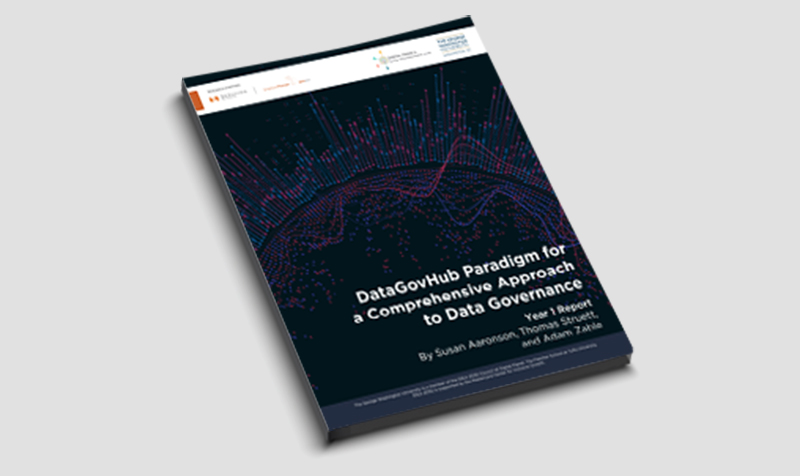
Policymakers face the challenge of governing diverse data effectively to build trust in a flexible, ethical, and accountable manner.
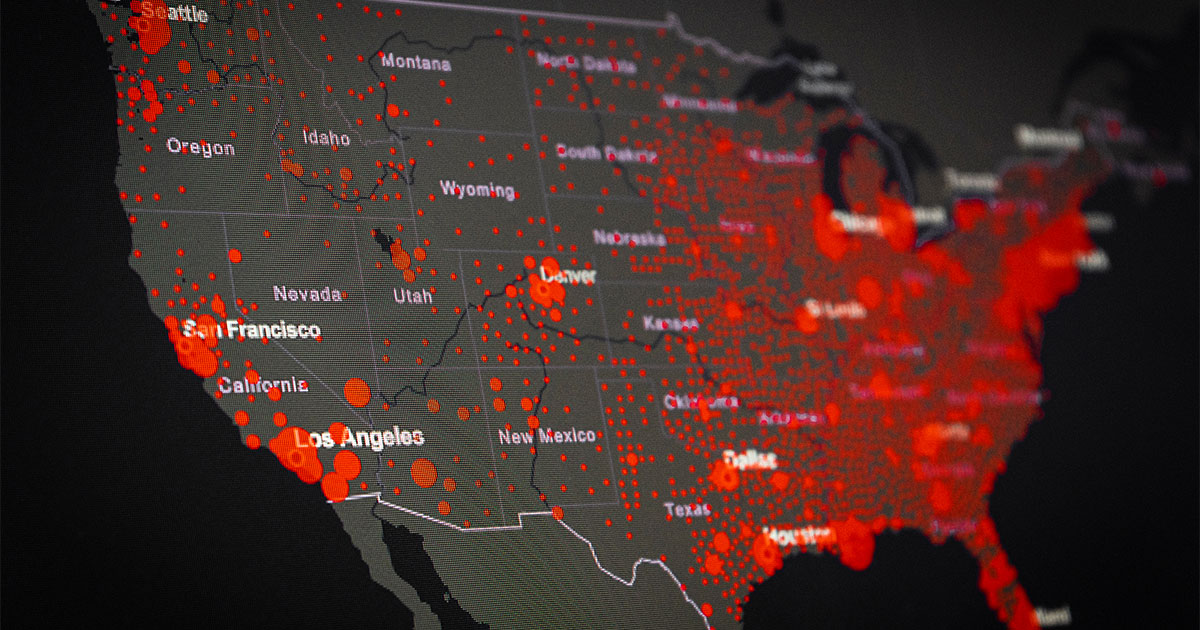
US broadband expansion lowered Covid mortality, especially in metro areas. Internet access is crucial in the public health toolbox.
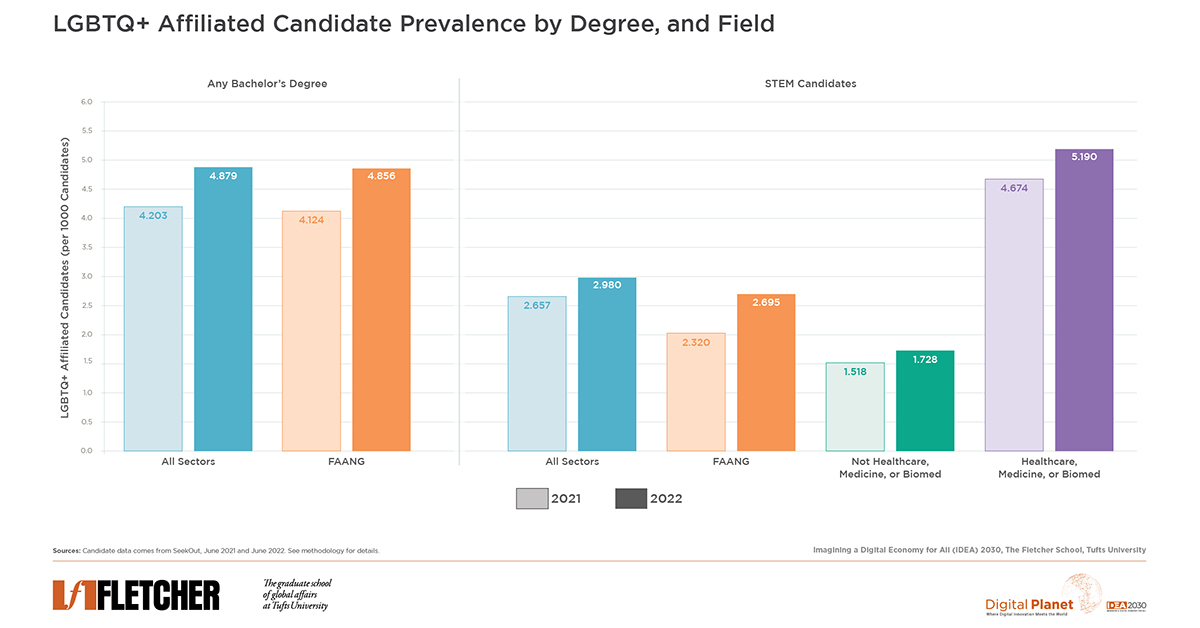
For Pride Month 2022, Digital Planet updates LGBTQ+ representation analysis in STEM. Affiliation disparities persist, with women in STEM and FAANG facing challenges. Younger STEM candidates lag behind college graduates in LGBTQ+ affiliation.
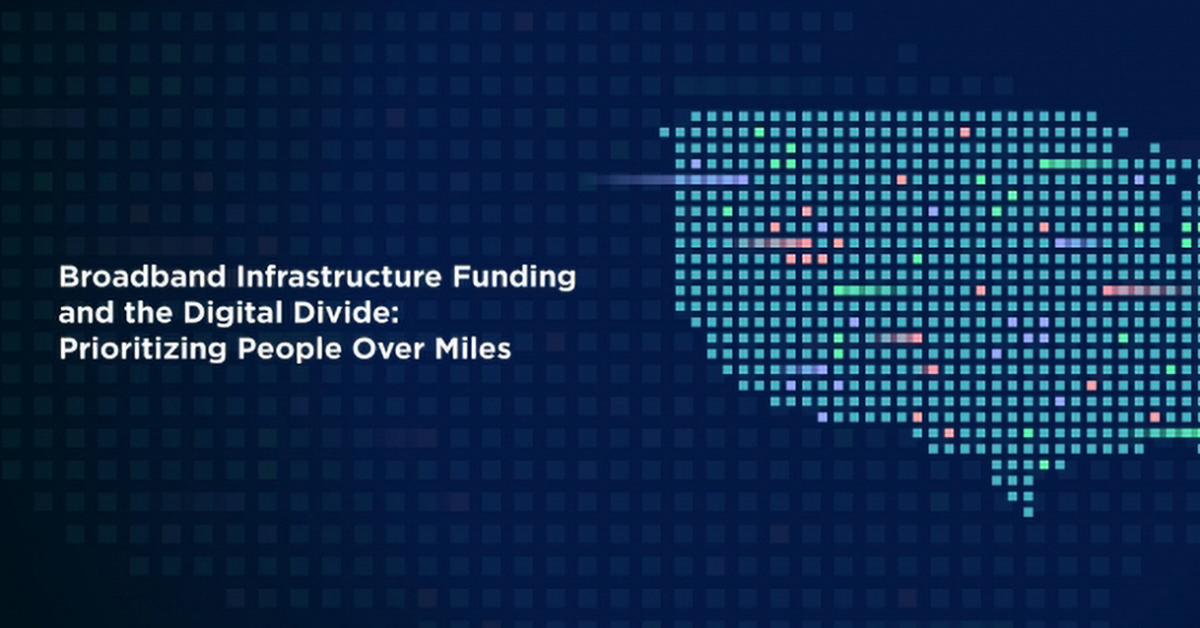
The Infrastructure Investment and Jobs Act allocates $65B to expand US broadband. We advocate a “people over miles” approach for equitable access.

We present Progress to Digital Parity—an interactive scorecard that tracks the journey towards realizing the goal of a digital economy for everyone, everywhere.
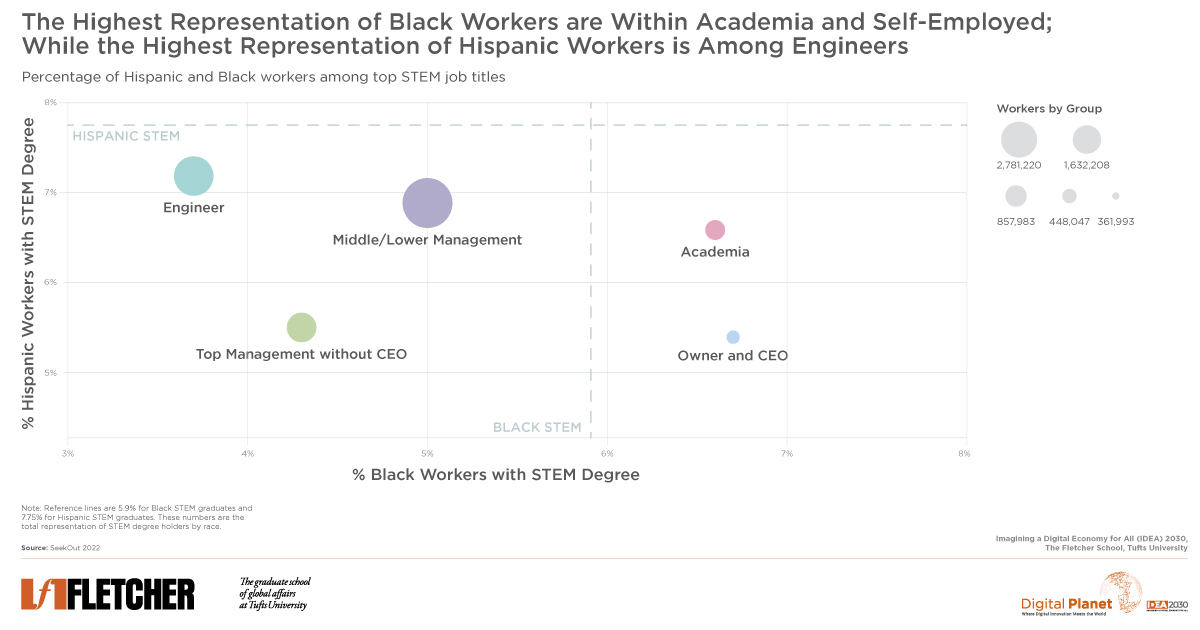
Despite strides in college attainment, Black Americans encounter obstacles in pursuing lucrative careers, especially in high-paying STEM roles within the technology sector.
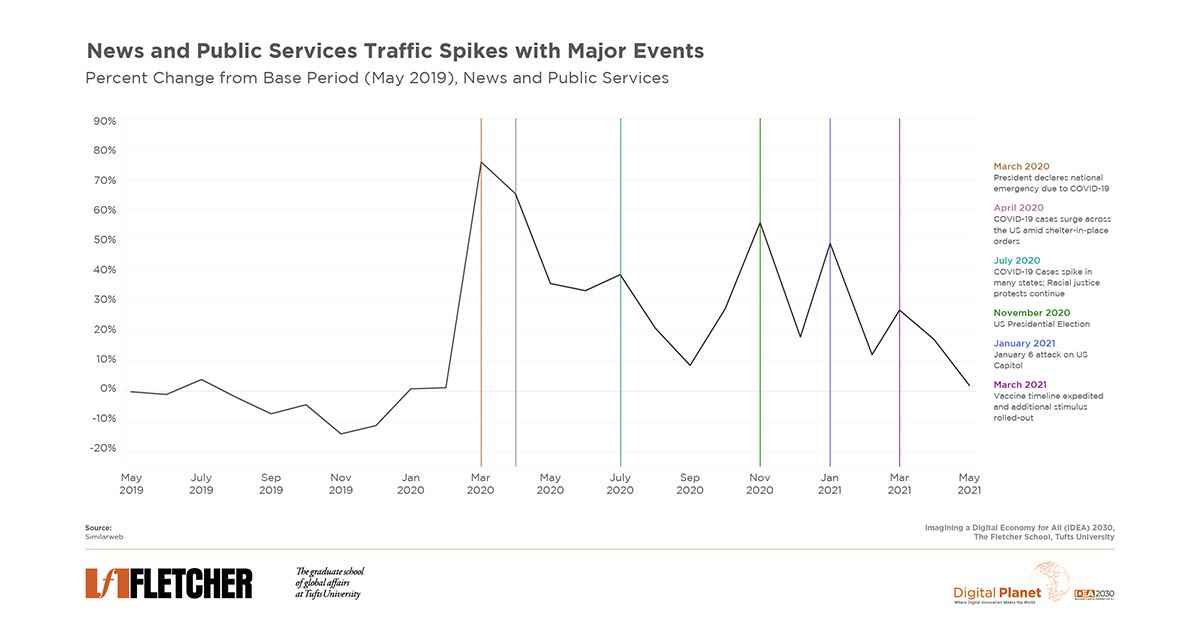
During the online shift, global digital adoption surged, advancing us digitally by 5 years in just 8 weeks.
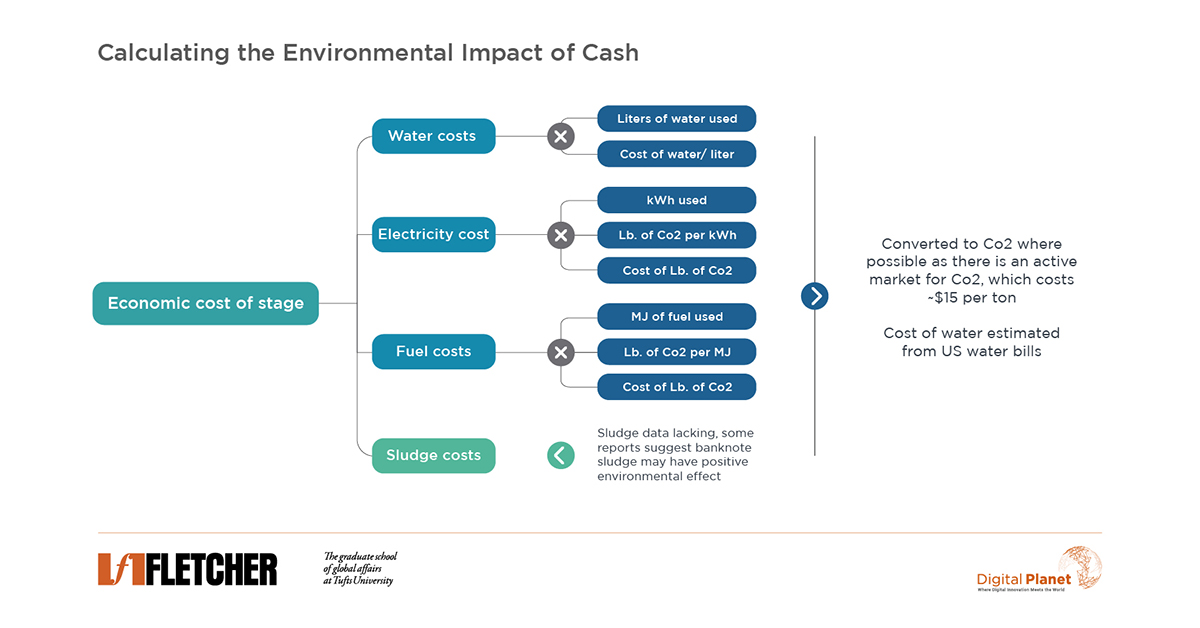
Value storage has costs: US cash notes at $0.26 each vs. Bitcoin’s $70 per coin CO2. Despite Bitcoin’s higher cost, cash notes’ total impact ($12.9B USD) far exceeds Bitcoin’s ($1.3B USD).
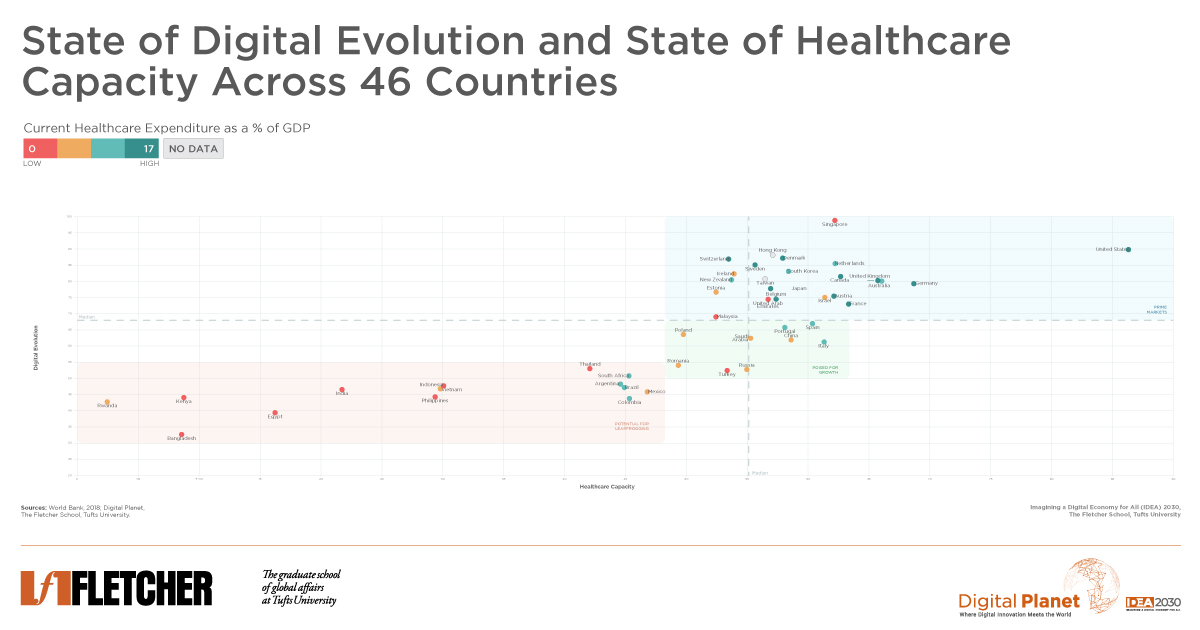
Global healthcare digitization varies wildly. Our study in 46 countries identifies virtualized healthcare opportunities, enabling lagging nations to leapfrog with digital tools for quality care.
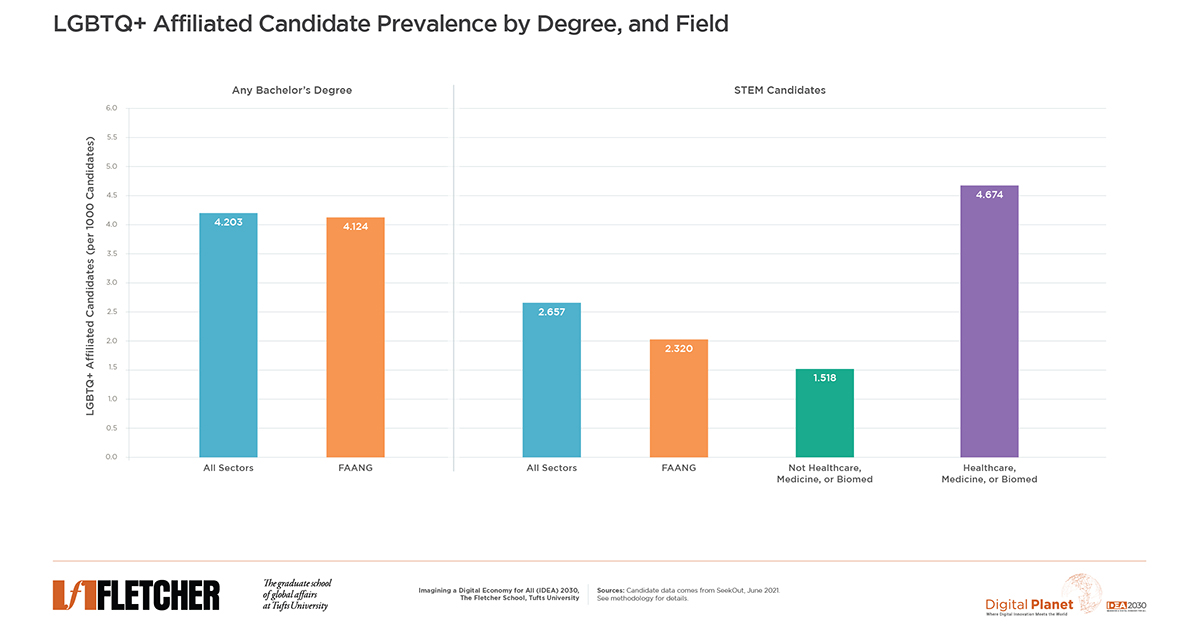
Digital Planet explores LGBTQ+ solidarity in STEM for Pride Month. STEM grads express less LGBTQ+ on resumes. Women in STEM are twice as likely as men to affiliate with the gay community.
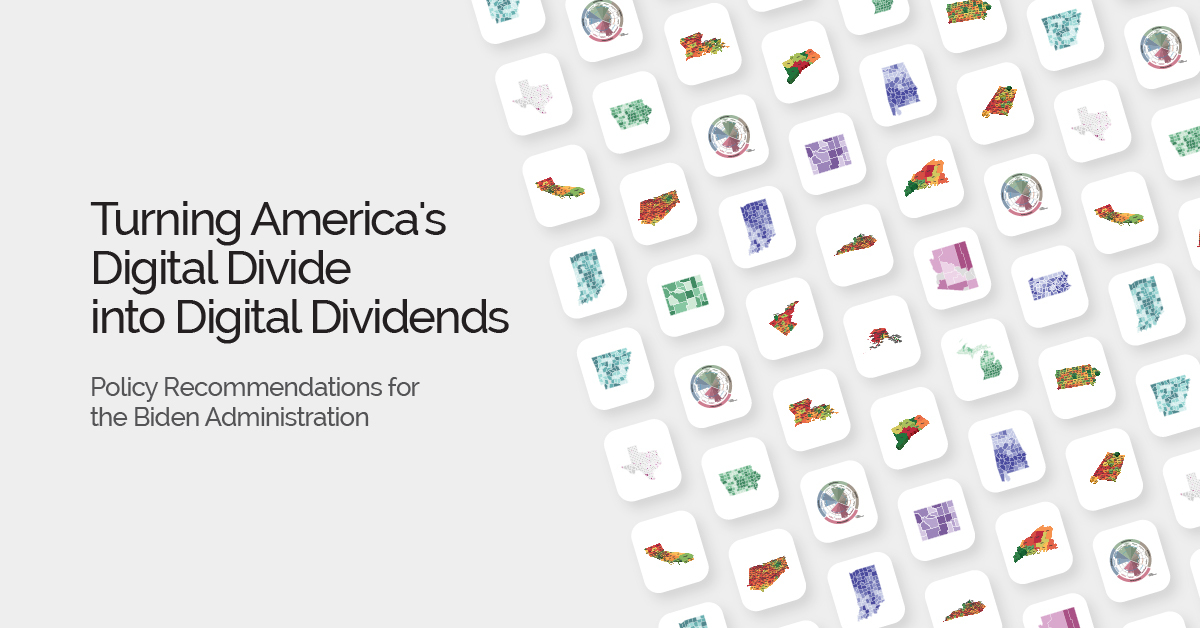
The US digital divide has sparked division. The Biden-Harris administration can bridge gaps, review access, inclusion, institutions, and digital proficiency for transformative change in a recovering economy.
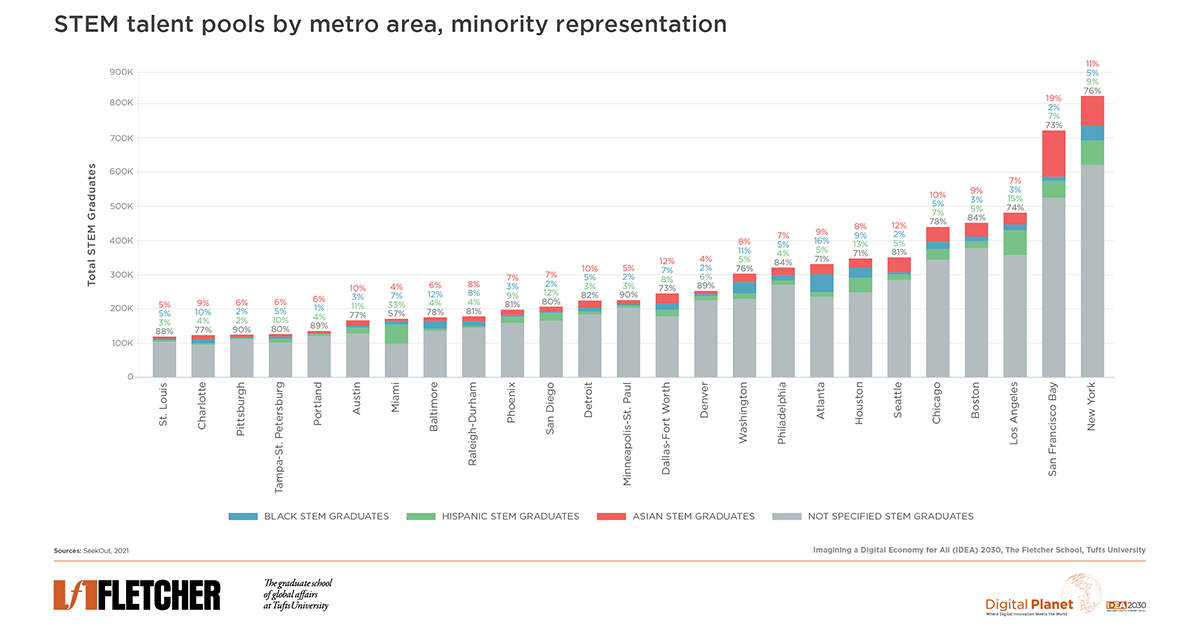
In the evolving work landscape, how can we boost under-represented talent (e.g., Black, Hispanic, female) in high-demand roles? Where can organizations find these diverse pools in major U.S. metro areas?
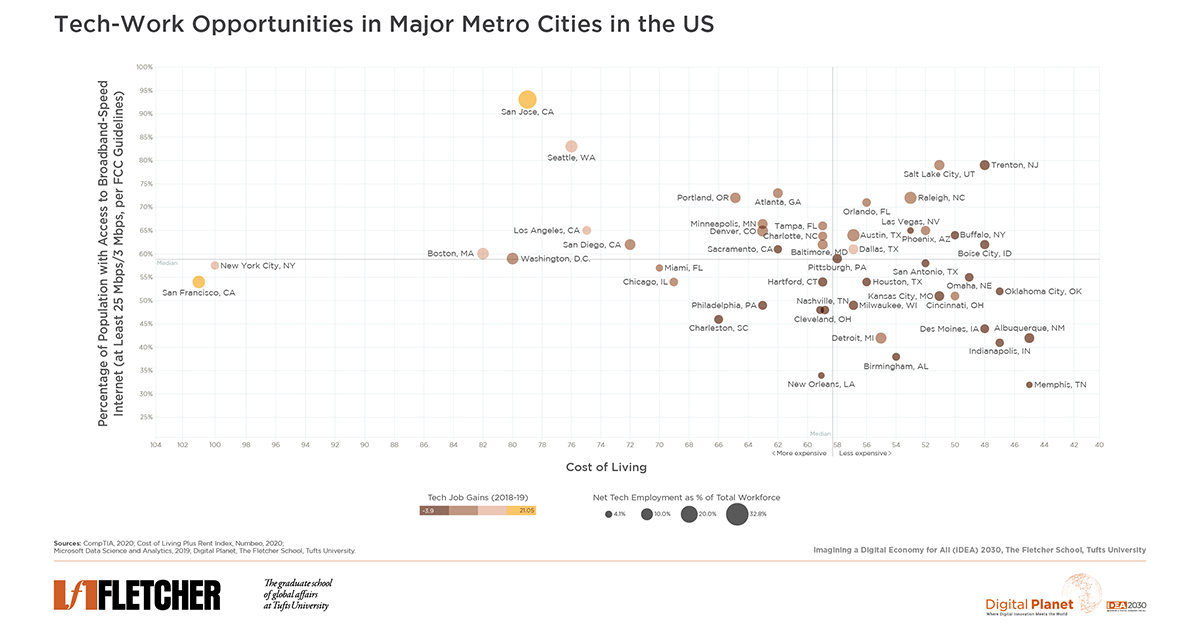
US States expanded telehealth, yet 16 of them face challenges with subpar broadband, hindering digital healthcare access.
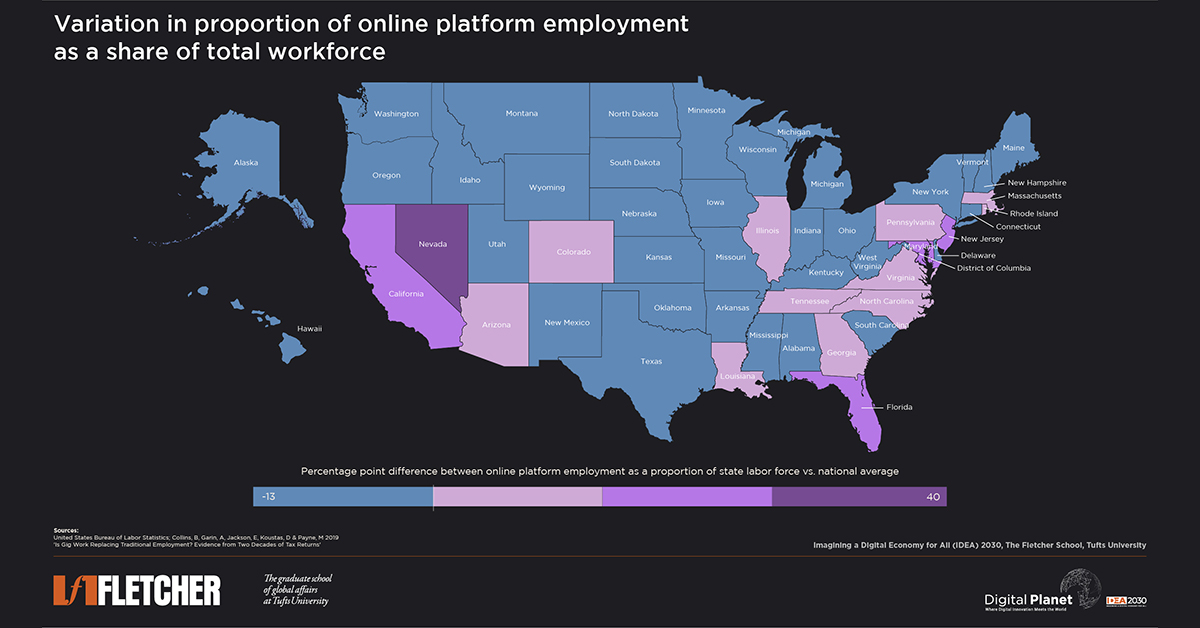
Digitally ready states thrived during the pandemic, leveraging gig workers for essential services. Yet, it revealed disparities and vulnerabilities in the gig economy.
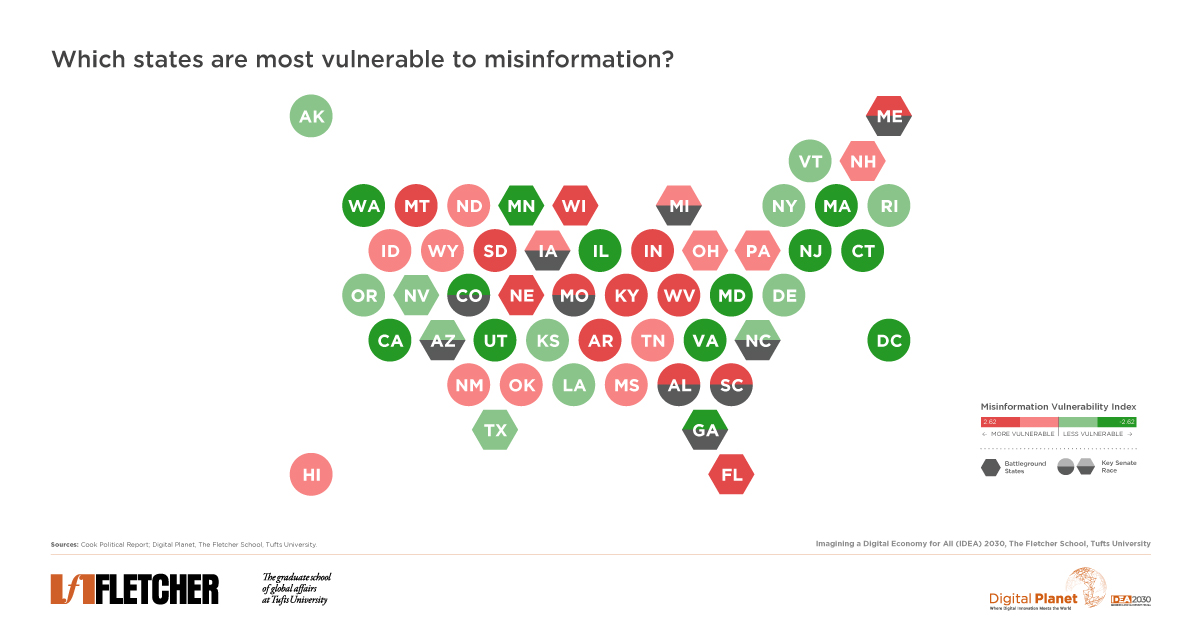
US parties race, relying on digital platforms. Public dependence on social media for news raises concerns about misinformation amid the COVID-19 pandemic, fueling a surge in digital crime.
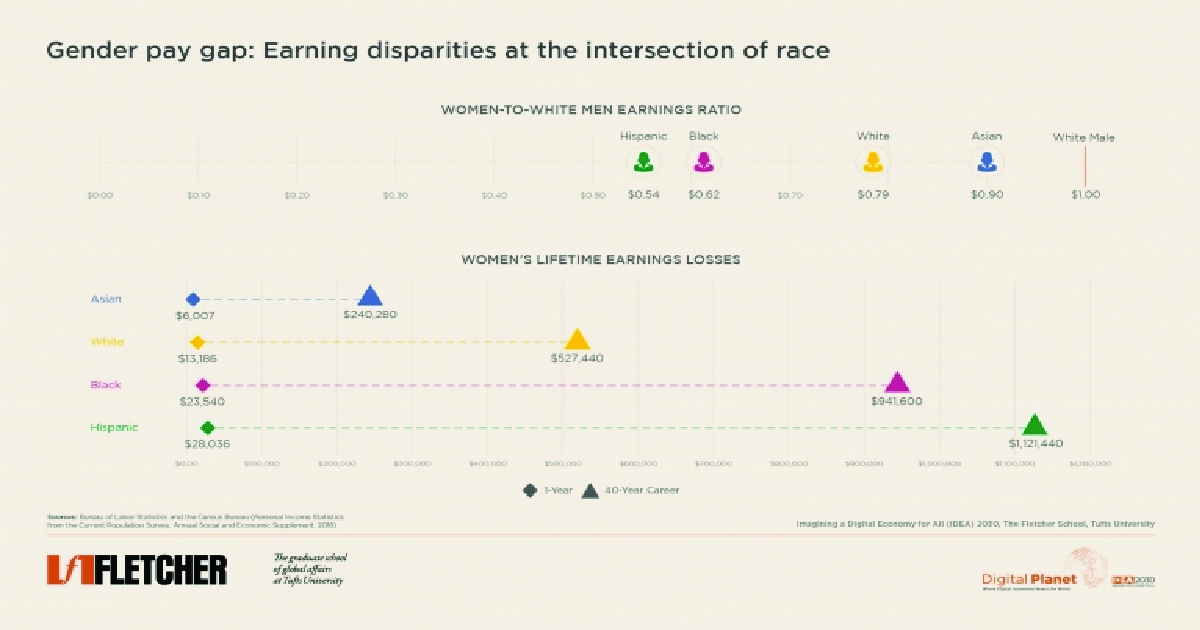
US women earn 82¢ for every dollar men make, worsened by race and education factors.
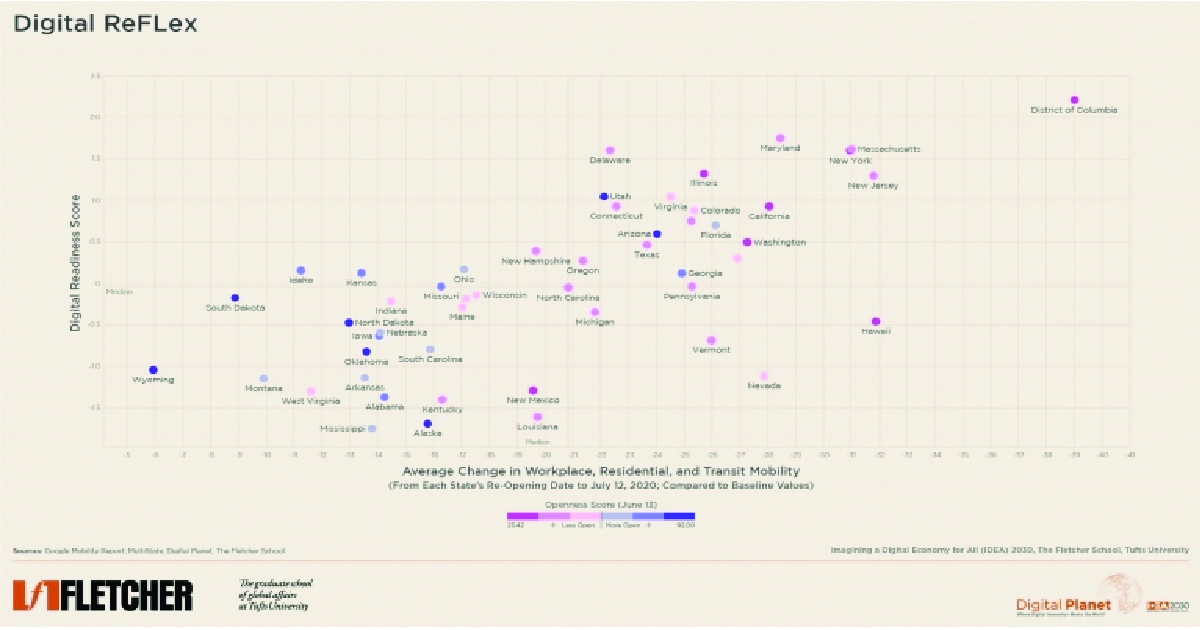
States, amid surging virus, reverse reopenings. Digital-ready states endure lockdowns better, with strict distancing measures for effective COVID-19 control.
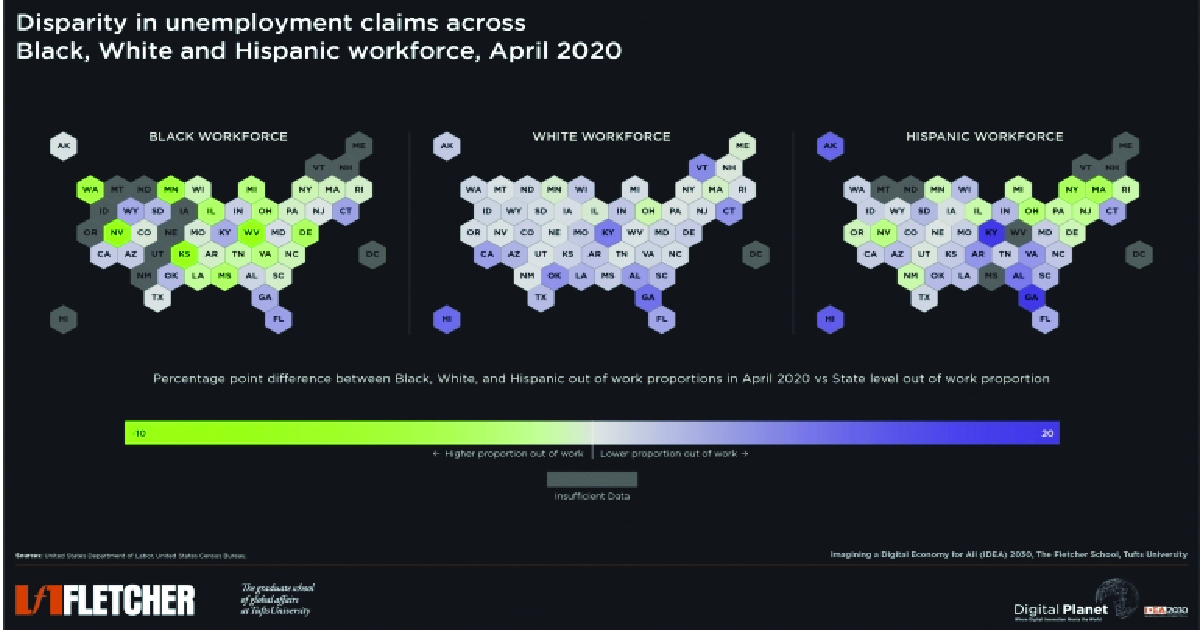
COVID-19 deepens racial disparities, particularly impacting Black communities. Addressing inequalities is crucial for an inclusive recovery.
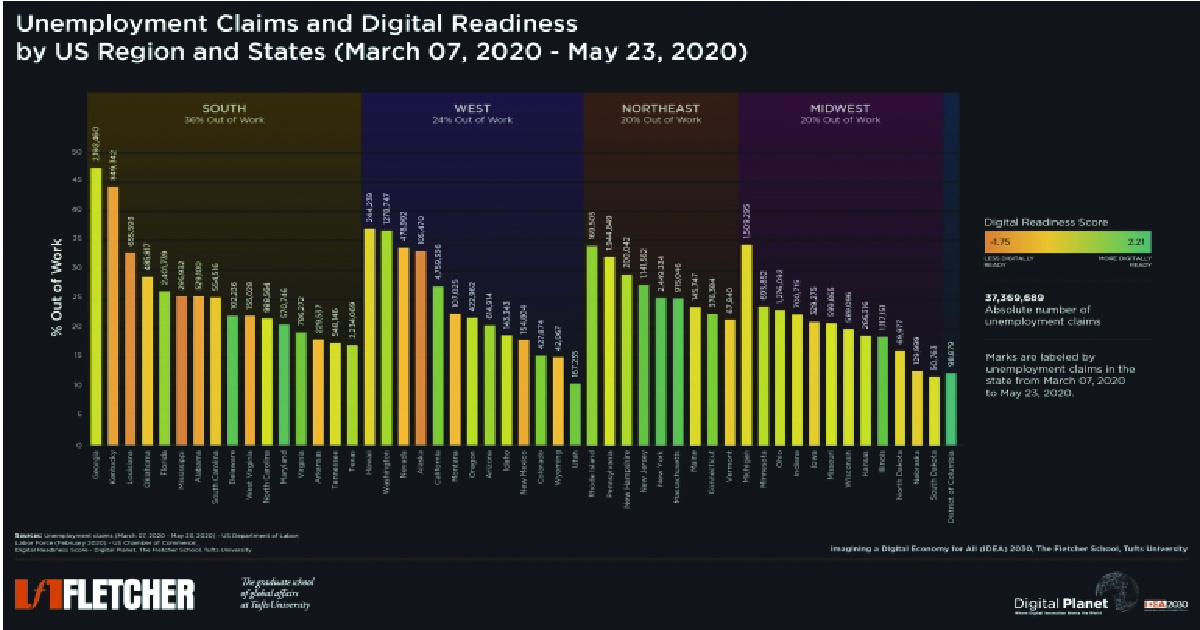
Digital platforms are crucial for business continuity during COVID-19. Washington excels in remote work, job transitions, and online unemployment filing support.
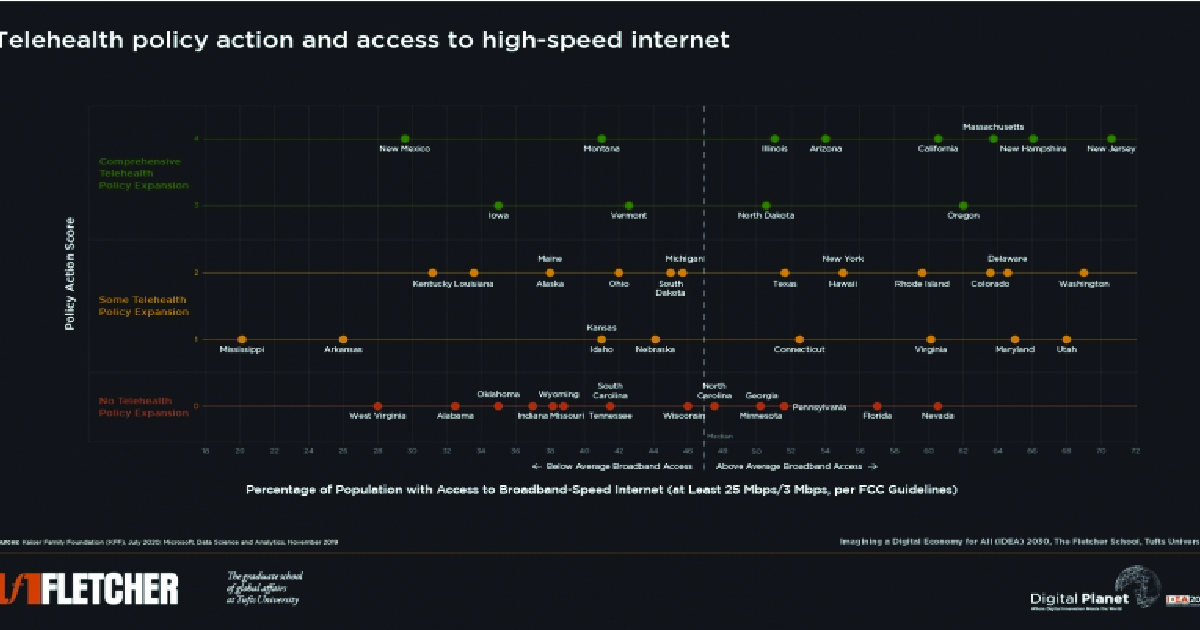
US States expanded telehealth, but 16 of them face challenges due to subpar broadband, limiting digital healthcare access.
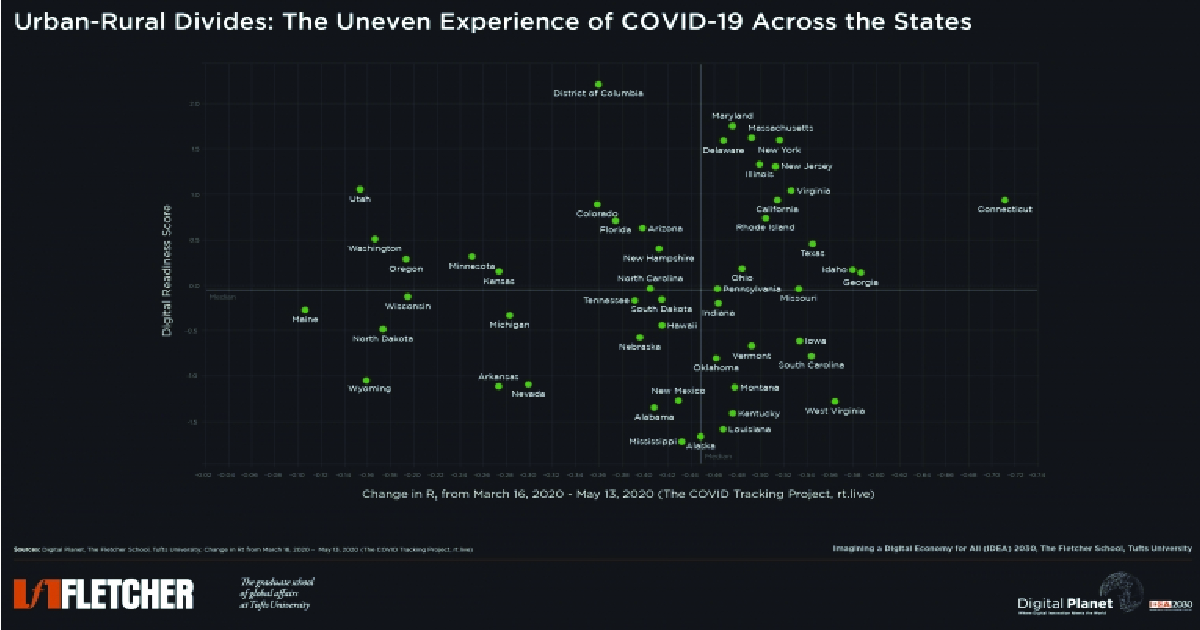
Digital Planet scored states on digital readiness and virus control (Rt change) from March 16 to May 13, 2020, focusing on remote work feasibility amid the pandemic.
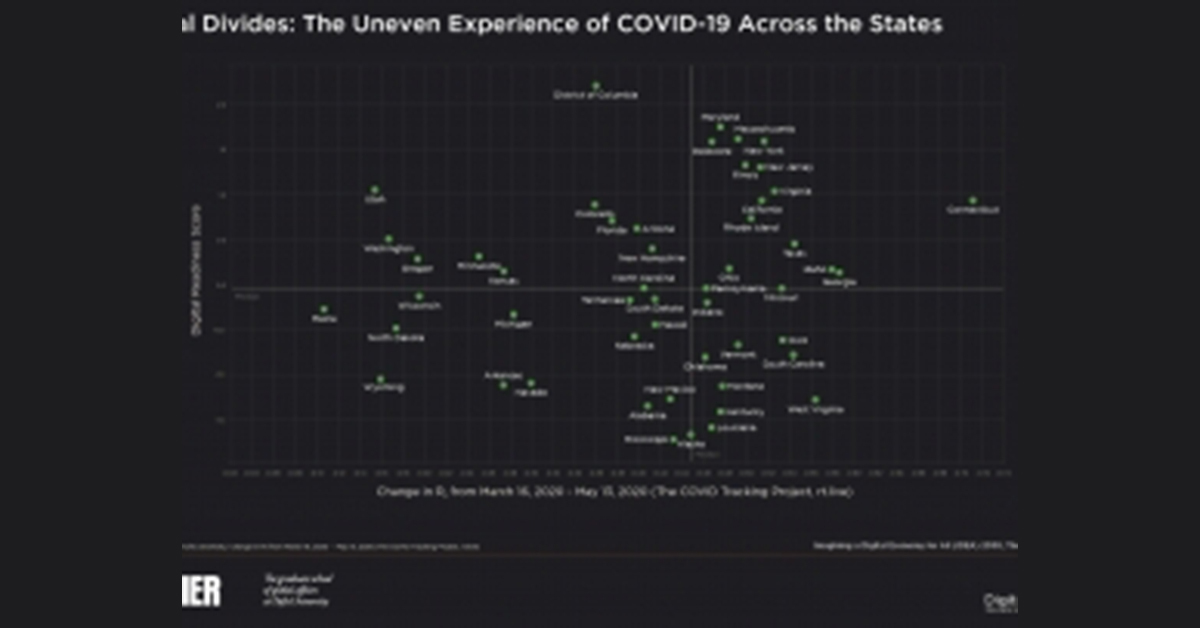
Digitally ready states implementing strict social distancing reduced COVID-19 rates. Urban areas provided more opportunities for work, education, and interaction in a socially distant world.
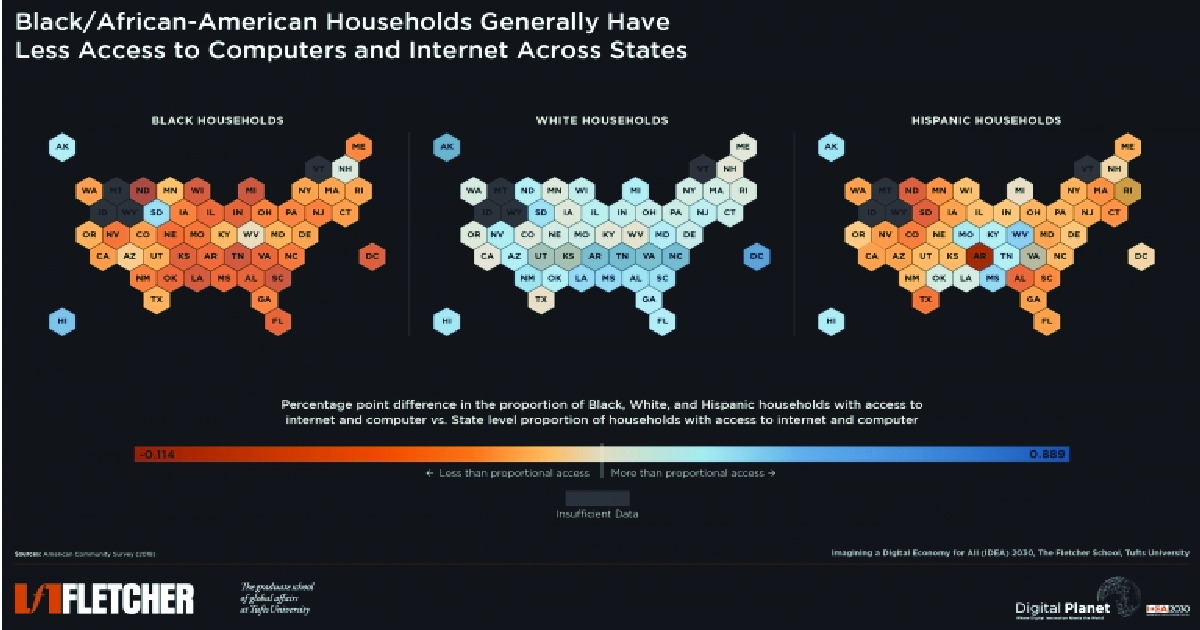
COVID-19 exposes US inequality, with certain races over-represented in less-flexible, low-tech jobs due to limited access to stable internet and computers.
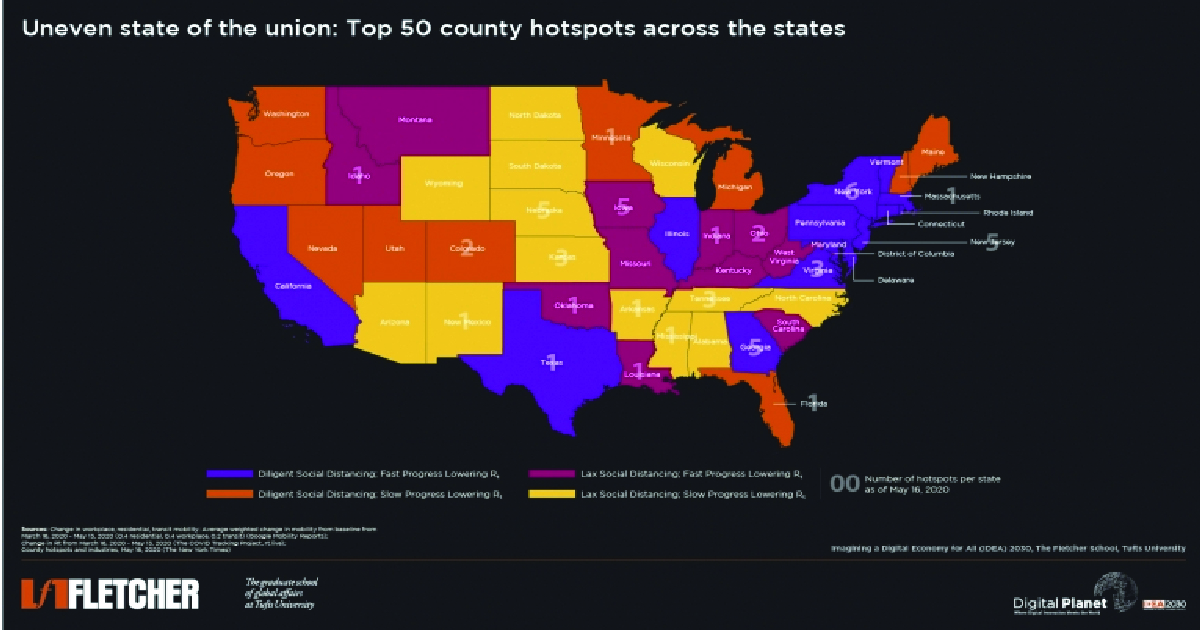
Despite 1.67M cases and nearly 100K deaths, US states vary in easing COVID-19 restrictions due to a lack of federal guidance.

COVID-19 reveals US inequality, with races over-represented in inflexible, low-tech jobs due to limited internet access.
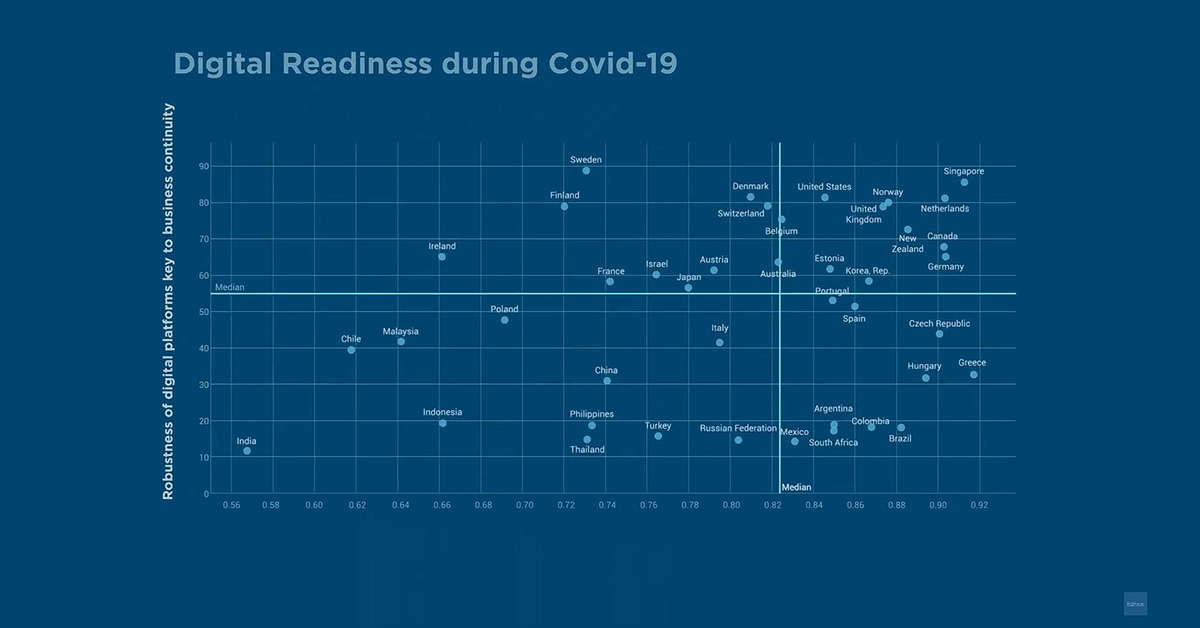
Are countries around the world prepared to keep the wheels of their economies turning during Coronavirus lockdowns? Watch the Social Distance Readiness Benchmark video summary to find out.
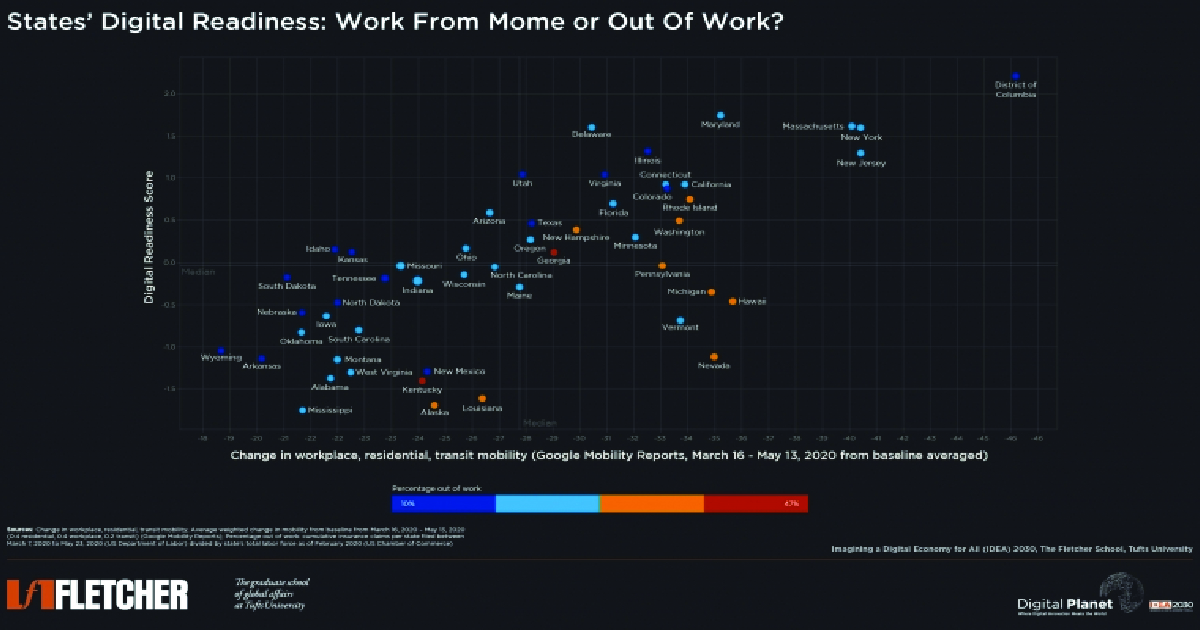
During the COVID-19 lockdown, US States that were least digitally ready and had the strictest social distancing measures experienced the highest unemployment numbers.
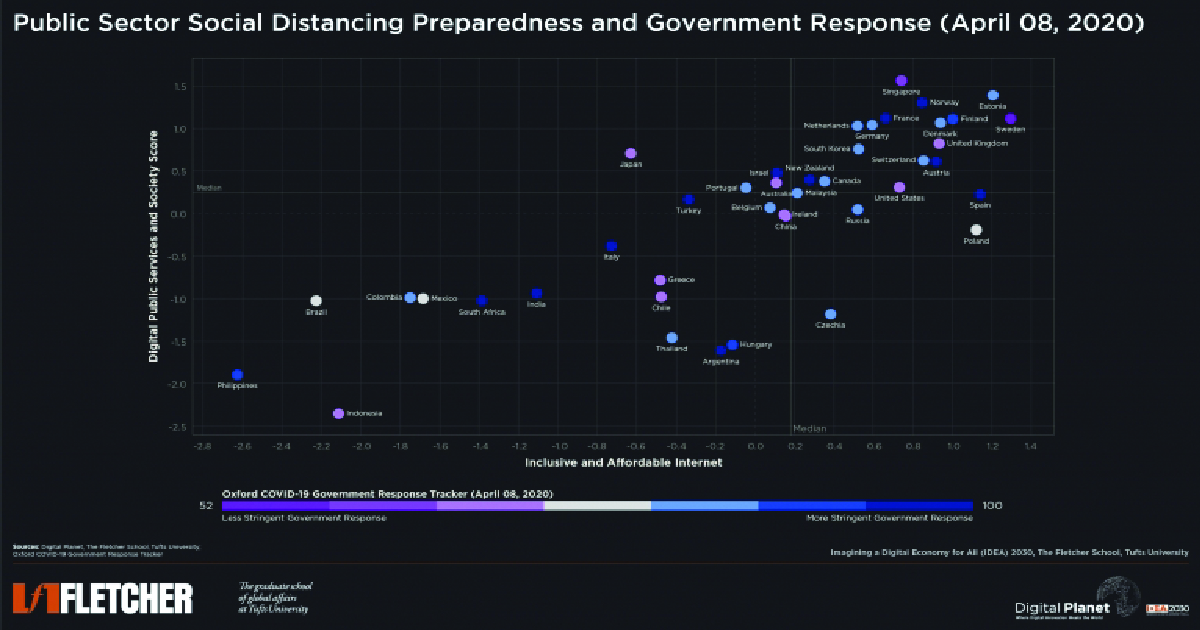
Online public services need infrastructure and affordable internet. We scored 42 countries on digital services and internet access, considering lockdown measures.

Watch the video summary to learn more about the key takeaways from the African Leapfrog Index.

Online public services need infrastructure and affordable internet. We scored 42 countries on digital services and internet access, considering lockdown measures.
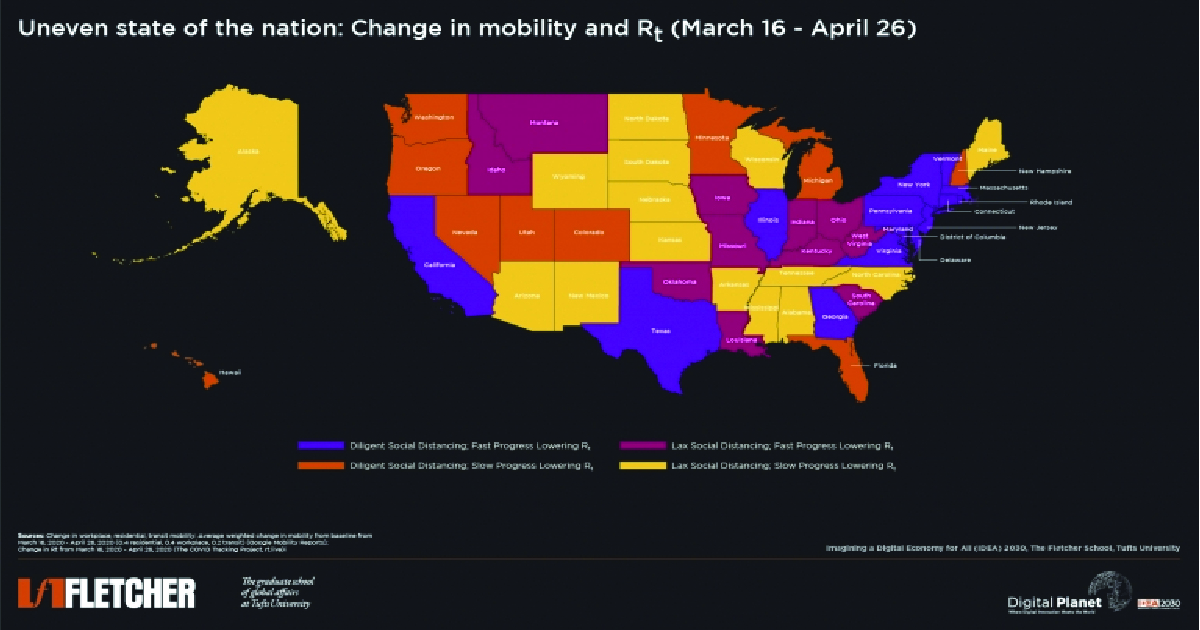
How does COVID-19 affect various US regions? Digital Planet analyzed mobility changes in relation to the virus reproduction rate.
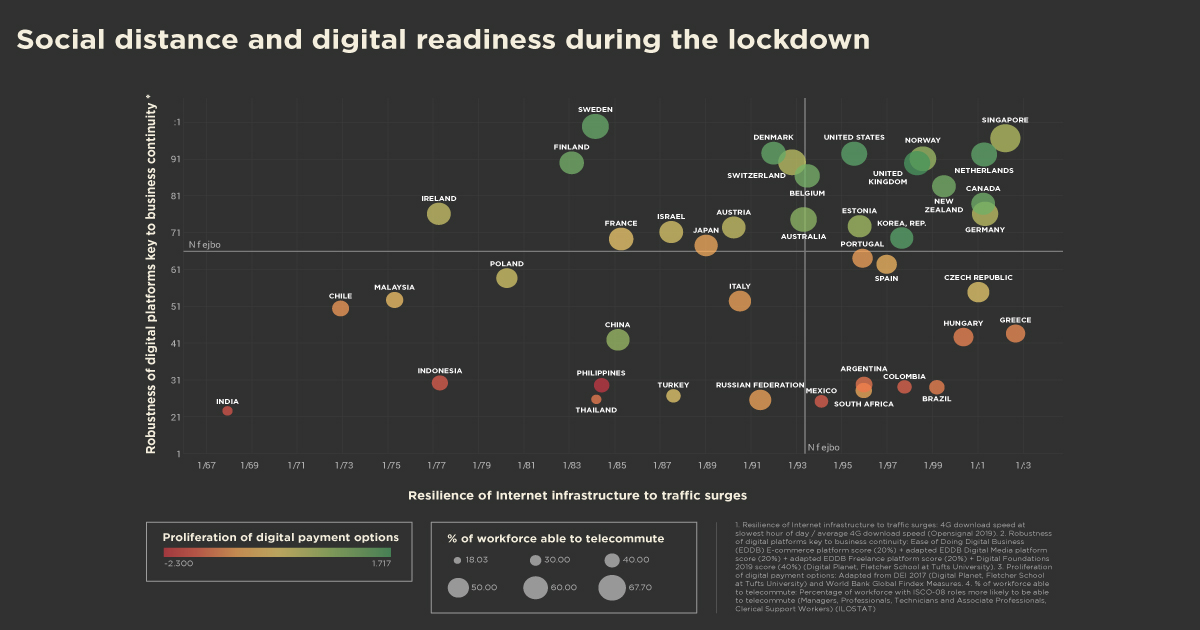
Remote work depends on digital services – telecom, e-commerce, digital media for communication. Countries need robust digital payments for transaction surges.

How emerging technologies and digital transformations can accelerate economic and societal growth in 6 African countries.